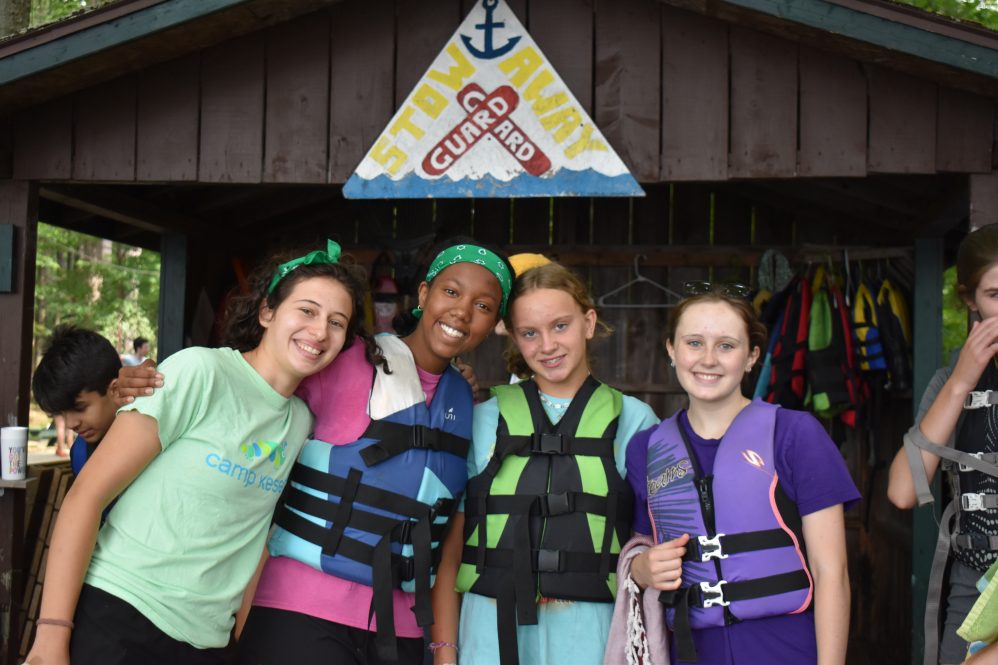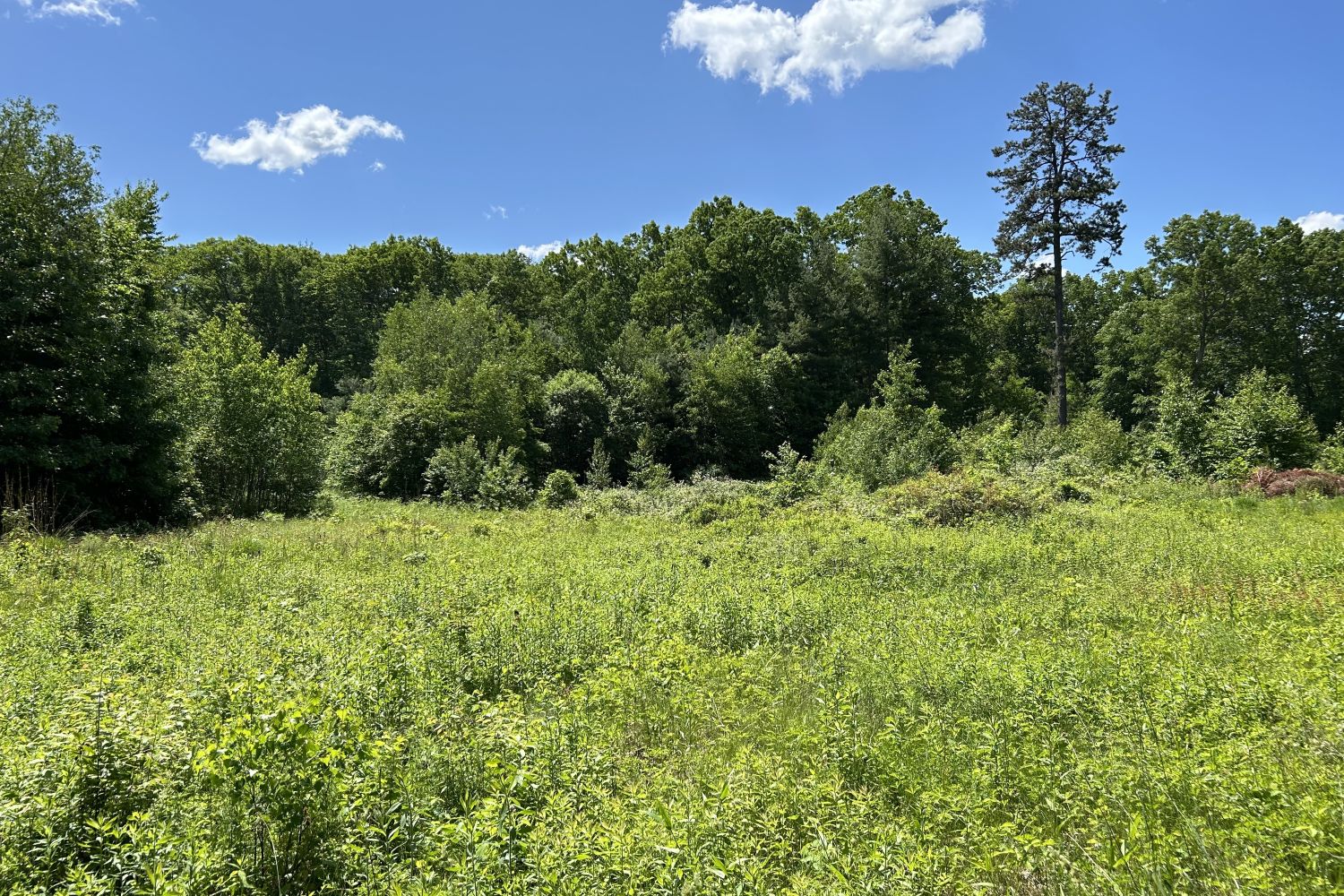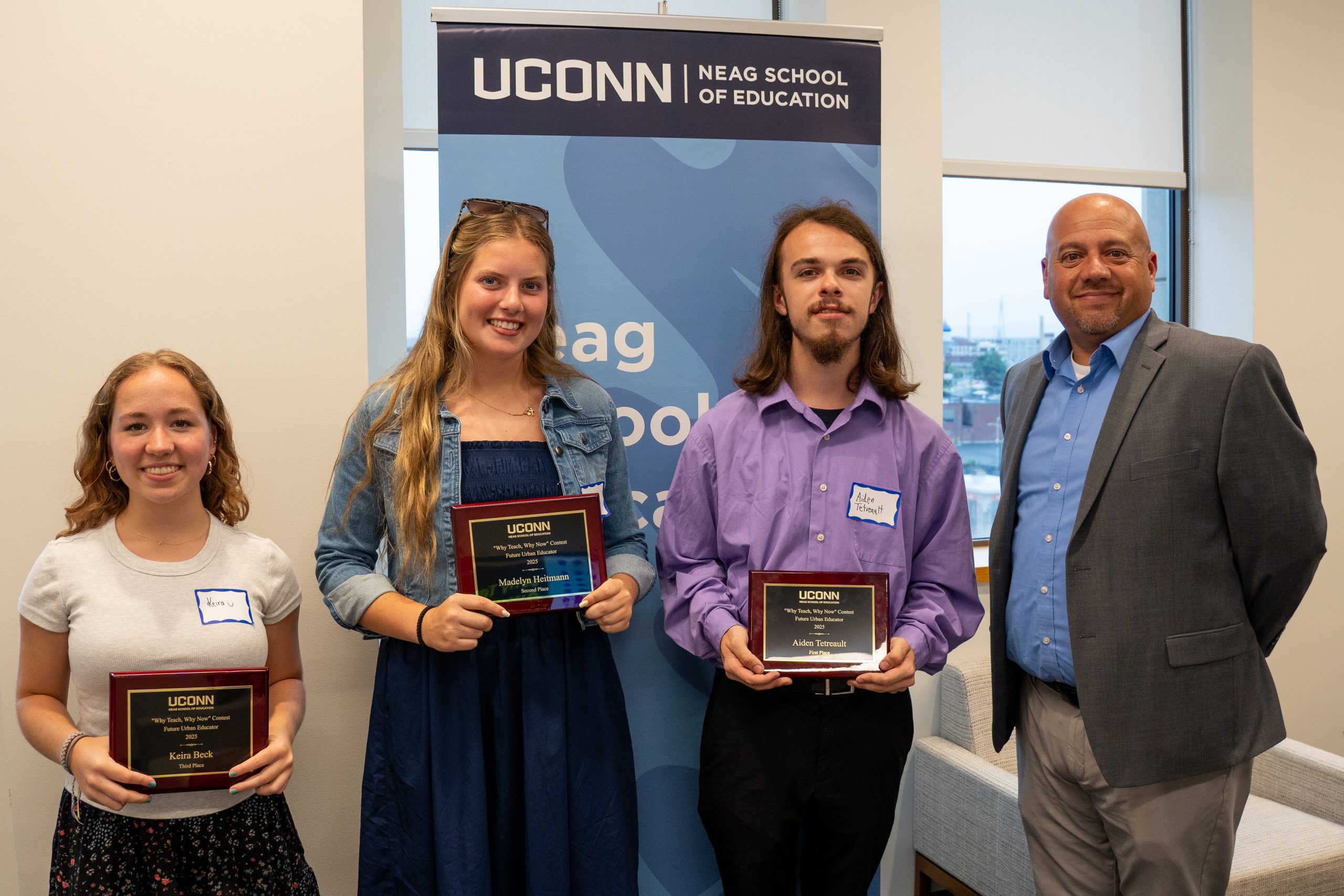Camp Kesem is like any other summer camp: young adult counselors lead younger campers in a fun-filled week of outdoor games, arts and crafts, and campfire nights, capped off with a group talent show.
But there are a few things that set this camp apart: it is provided completely free of charge; it is run entirely by volunteer college student teams; and all the campers have been impacted by a parent or primary caregiver’s cancer diagnosis.
The nationwide organization Kesem was launched in 2002 with a goal of providing fun, community, and normalcy to children experiencing a parent’s cancer. The summer camp is its flagship program, but the organization has since expanded to include year-round support structures, like care packages and activity days.
UConn’s Kesem chapter was founded in 2020 by Nathan Pérez-Espitia ‘22 (CLAS). Pérez-Espitia participated in Yale’s Kesem chapter in high school, in the wake of his mother’s cancer diagnosis.
“It gave him motivation; it made him feel like a regular, normal kid who could have fun despite the illness of his mother, and gave him a sense of purpose,” recalls Catina Caban-Owen, Pérez-Espitia’s great aunt, who is an adjunct professor at the UConn School of Social Work.
Pérez-Espitia lost his mother to cancer during his sophomore year of high school. When he got to UConn, he was determined to start a new Kesem chapter, which would increase the number of kids in the region who could access Kesem’s vital resources.
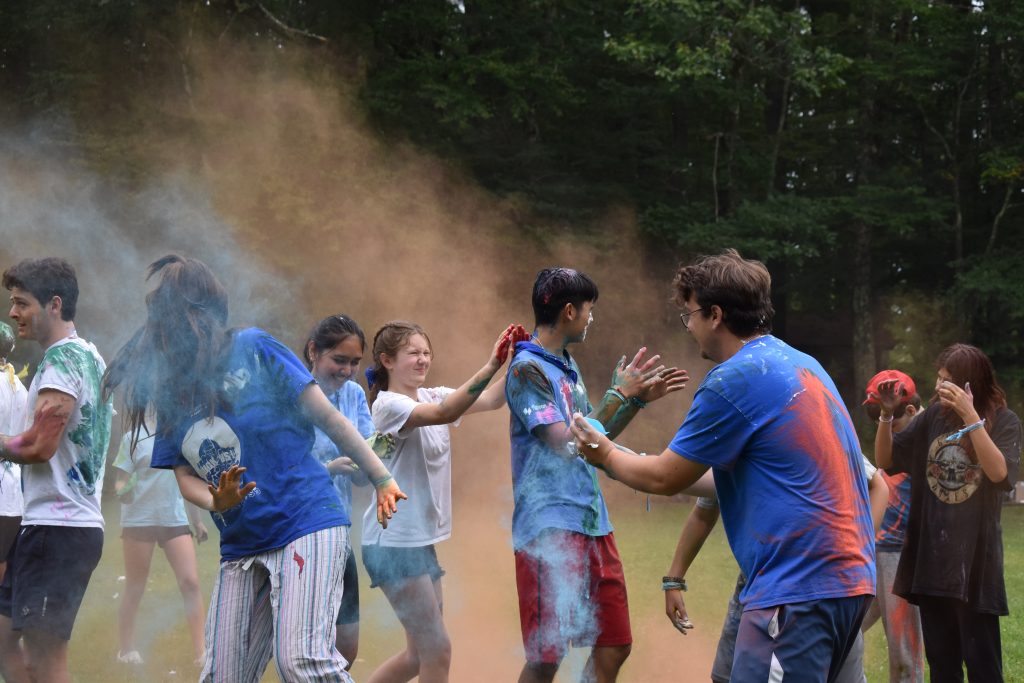
Getting Off the Ground
The first attempt was an uphill battle, he recalls. In order to launch a new Kesem chapter, applicants must demonstrate community buy-in through a local fundraising and voting campaign. As a first-year student who was commuting to Storrs from Willimantic without a car, Pérez-Espitia had had little opportunity to establish the grassroots network he would need to draw on.
“But I knew, like in my head, I have four years here — I’m going to make it happen,” he says.
Learning from the previous year’s difficulties, Pérez-Espitia mounted a bigger and better campaign as a sophomore. He booked a table near the entrance of the Homer Babbidge Library for 10 hours every day, which was constantly staffed with volunteers who would tell visitors about Kesem and help them cast their vote for the UConn chapter online.
Organizing also took place at favorite local pub Ted’s, in crowded lecture halls where Pérez-Espitia addressed the student body, and on social media. Enterprising volunteers papered the Storrs campus with flyers and cold-approached other students to spread the word.
“We did have a multitude of community support. It was beautiful to see,” Pérez-Espitia says. “I’m going to be forever grateful to the UConn community and to the Willimantic community for coming out and getting it done. It’s still surreal to me, even three years out.”
The fledgling UConn Kesem chapter hosted its first camp virtually in 2021, with about twelve campers. 2022 saw UConn’s first in-person camp, in partnership with Kesem Rhode Island (which will continue for this year’s camp), with a total of ten campers.
“It ended up being such a magical week, and one of the most amazing experiences I’ve ever been a part of,” says Megan LeMay ‘24 (CLAS), UConn Kesem codirector. “It felt like a big family throughout the whole week.”
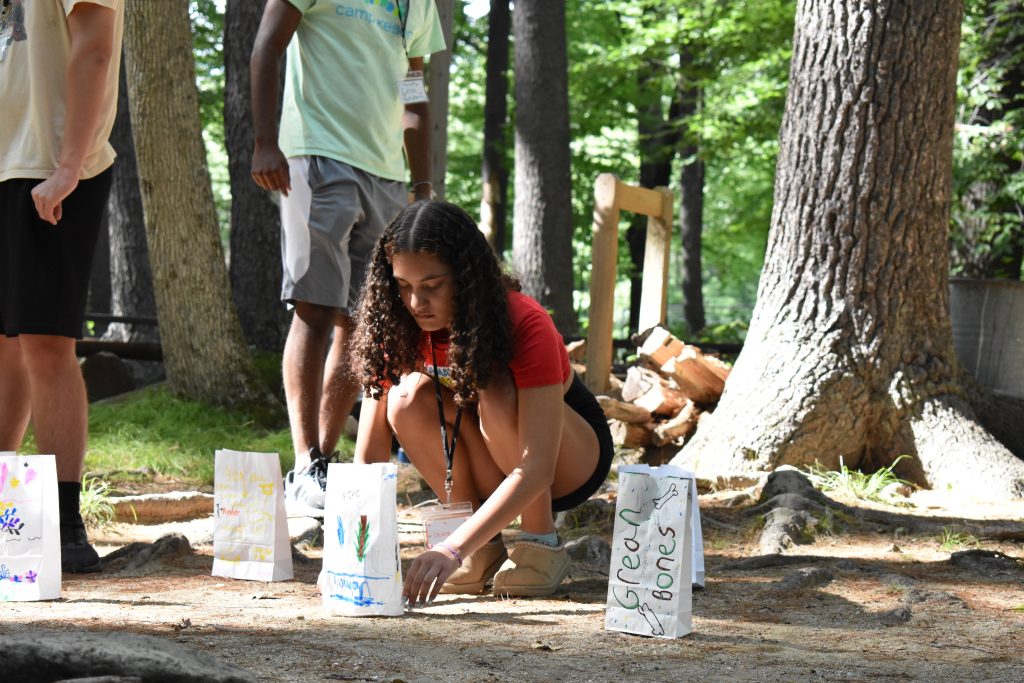
Camp Traditions
Campers stayed in cabins, rode paddleboards and kayaks, played gaga ball, created friendship bracelets and luminaries, and sang under the stars.
In a tiny twist on the traditional summer camp template, the children were also invited to participate in one afternoon of “Empowerment,” a guided group reflection on the feelings brought up by their family member’s cancer. The session began by passing around a ball of yarn and twisting it around each camper’s wrist — symbolizing the common “thread” among all of them — with each turn allowing the attendants to express their own feelings as they spoke about their experiences.
The camp team works hard to create a fun, family-like atmosphere, where campers have the option to unburden themselves from the stress and grief of living with a parent’s cancer, or actively engage with it and process these feelings alongside others with similar experiences. Nobody at camp uses their real names — even the counselors choose aliases for the week — which allows for a conscious break from everyday life.
“It’s not only a tradition, but it allows us to be whomever we want,” explains Caban-Owen, who volunteers as a mental health professional at camp and goes by the name “WolfMina.” “And it provides not only a fun way to address each other, but also privacy and confidentiality.”
LeMay becomes “Casper” (like the friendly ghost) at camp. Gitte Joergensen, a research associate in the department of psychology at UConn, is known as “Spooky.”
Like Caban-Owen, Joergensen volunteers as a mental health professional and comes to Kesem with deep personal connections to the issue, as a cancer survivor who has also lost family to cancer.
“As soon as I read about the program, I knew that I needed to volunteer,” Joergensen says. “I don’t have children myself, but I’m close to my sister’s kids, who were 10 and 12 when she died of breast cancer. This was in Denmark, where I’m originally from, and unfortunately there was not much support for them there. However, if they had been given the opportunity to attend something like Camp Kesem it would have been invaluable at the time.”
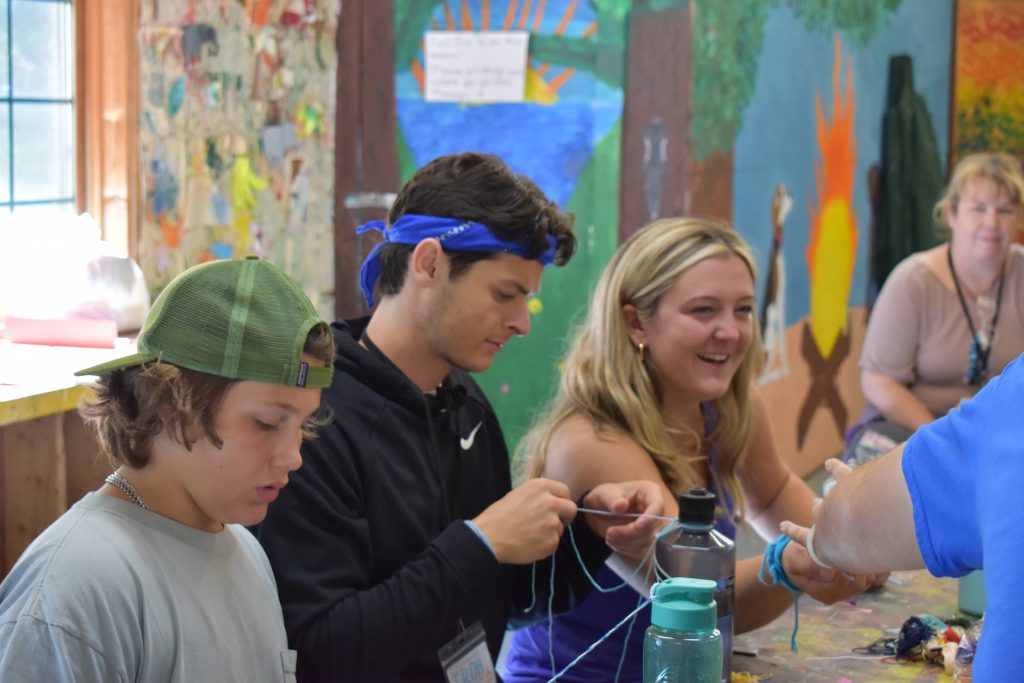
“A Cause Close to My Heart”
According to Kesem’s FY22 annual report, 98% of parents felt that their child was positively impacted by Camp Kesem, and 96% credit Kesem with directly improving their child’s (and their own) mental health. In addition to the impacts on campers, Kesem also creates an opportunity for the volunteer and professional teams to join a community and do work they can feel good about.
“Kesem is really just a cause close to my heart,” says Abigail “A2” Amara ‘26 (CLAS), UConn Kesem’s outreach coordinator. “About two weeks before I moved to UConn, my mom was diagnosed with stage three cancer. Moving to school and just not knowing how to grasp it, not being able to be near her, was probably one of the hardest things I’ve ever had to deal with.”
Amara came onboard the organization earlier this year and is looking forward to experiencing her first camp this summer. So far, she says, she has enjoyed coordinating events like Friends and Family Day, where campers got to participate in a day of fun activities (like pumpkin painting) at UConn’s Storrs campus.
“I just like seeing all the families, and seeing all the kids and just connecting with them has made me so, so, so, excited,” Amara says. “It’s a way to continue this journey. I really wanted to be on the outreach board because, personally, I know how to talk about these things and be sensitive, and just be super empathetic to everyone’s situation.”
While many of the volunteers who make Kesem possible have had their own family experiences with cancer, Joergensen emphasizes that this is not a prerequisite for getting involved.
“This is open to anybody,” she says. “People sometimes feel like they need to make excuses for wanting to get involved. But I say, if you want to help, help! We have enough tragedy already.”
UConn Kesem hosts fundraising events throughout the year and is always looking for more volunteers, including UConn students and community members. Those interested can visit the group’s Facebook page or email uconn@kesem.org for more information.
